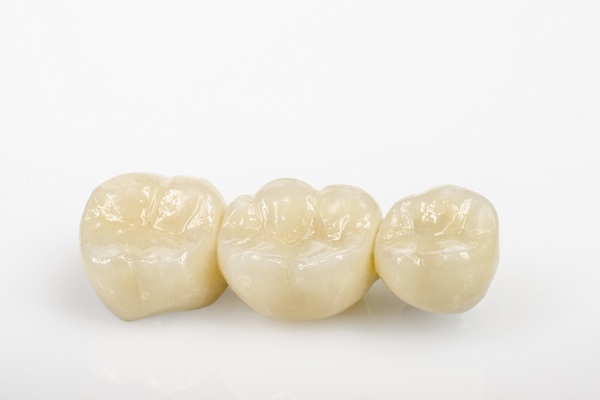Ways To Extend the Life of Dental Implants

One of the reasons why dental implants are a popular option for tooth restoration is that they are durable. With the proper care, they can last a lifetime. Maintaining your implants is not much different than caring for natural teeth, but you have to be diligent about dental hygiene to avoid problems that could cause the failure of your implants.
What can cause dental implants to fail?
It is very rare for dental implants to fail. The success rate is right around 98%, so most patients continue to enjoy the benefits of implants for multiple decades. However, on occasion when implants have been known to fail, at least one of several factors has typically been at play.
Failed osseointegration
After the procedure to place the implant, you have to wait for several months for the implant and the bone to fuse. If something goes wrong during the process, the implant could fail.
Nerve or tissue damage
With any surgical procedure, there is a risk of nerve damage. With a dental implant, this may occur due to placing the implant too close to a nerve, potentially causing pain and altered sensation.
Peri-implantitis
Peri-implantitis is an infection that occurs in the space under the gums around the implant.
How can you prevent implants from failing and prolong their lives?
The risk of dental implant failure is already low, and there are things you can do to decrease it further.
1. Follow recovery instructions
After the implantation procedure, you will receive instructions for managing your recovery and facilitating osseointegration. Following these directions closely, asking questions about any that you do not understand, is a significant contributor to the treatment's eventual success. Failed osseointegration usually relates to poor compliance with instructions following surgery.
2. Always perform good oral hygiene
Failure to maintain dental hygiene could allow bacteria to build up in your mouth. If it gets into your wound from your implantation, it could cause peri-implantitis, which may require additional surgery to treat.
3. Quit bad habits
Tobacco use can disrupt surgical wound healing and osseointegration. Because of the risk, your dentist may not perform the surgery at all until after you quit smoking. Due to the risks of other health issues from smoking, it is recommended that you not resume after you have completed your recovery.
Dental implants are nearly as strong as natural teeth, but you should still refrain from biting or chewing on objects that could damage them, such as your fingernails, pens, pencils, or ice. If you grind your teeth while you sleep, wearing a nightguard could protect your implants from damage.
Avoid especially hard foods that are difficult to chew. These foods can cause your dental implants to chip or warp. It is also possible that chewing very sticky foods can cause an implant to pop out.
Dental implants can stain just like real teeth. Stay away from coffee, tobacco, black tea, and other substances that could tarnish your teeth.
If your implants are new, avoid putting stress on them by trying to chew where your regular teeth are.
4. Have regular dental exams and cleanings
Even though implants cannot decay, other problems can develop, such as peri-implantitis. Furthermore, the surrounding teeth are still vulnerable to decay. Routine exams allow the dentist to check for issues with both your natural teeth and the implants.
5. Use the right oral hygiene products
Your dentist may recommend that you use a low-abrasive toothpaste on your dental implants. Highly abrasive toothpaste can wear down enamel and potentially damage them.
Floss designed for implants is commonly available, but you will probably be fine with regular unwaxed floss. Ask your dentist if you are not sure.
Why should I worry about my dental implant if it cannot get cavities?
While dental implants are not prone to cavities like organic teeth, the soft tissue that surrounds the implant could get infected. This is why practicing good oral hygiene and visiting your dentist are so important. Your dentist can check for signs of infection around the implant and catch them before they develop into a problem.
Conclusion
Implants are very durable, and the success rate is high. Maintaining implants means treating them the same way you treat regular teeth, with regular brushing and flossing, using antimicrobial mouthwash and tongue scrapers, avoiding tobacco, and habitually visiting your dentist. Caring for them properly reduces the already small risk of failure and helps them last a lifetime.
Request an appointment here: https://www.summitfamilycosmetic.com or call Summit Family & Cosmetic Dentistry at (908) 516-3833 for an appointment in our Summit office.
Check out what others are saying about our dental services on Yelp: Dental Implants in Summit, NJ.
Related Posts
Dental implants are the most stable dental restorations you can get. The invasive procedure will cut through your gum tissue. The dentist will drill into the jawbone and place titanium rods into the holes. The right kind of care is important to make sure that the implant site is free from infections. Here are the…
Dental implants are effective, long-lasting artificial teeth. Implants are surgically attached to the jawbone to look and function like natural teeth. As a result, patients can chew, talk, and laugh without worrying about dentures slipping. They also improve oral health. This article explores when and why to get implants and the qualifying factors for treatment.Patients…
Many types of dental implants are available. There are also many ways to attach them to your jawbone and gums. Working with your dentist can determine the right implants. Here are the different types of dental implants that are right for your dental needs.These restorations have titanium rods that the dentist inserts into the jawbone.…
You may not be aware that you need dental implants. But your dentist can tell you that you do, especially if you have regular checkups. Knowing if you need these restorations can motivate you to see your dentist about getting these dental replacements. Here are the three signs that you may need dental implants.Tooth loss…


